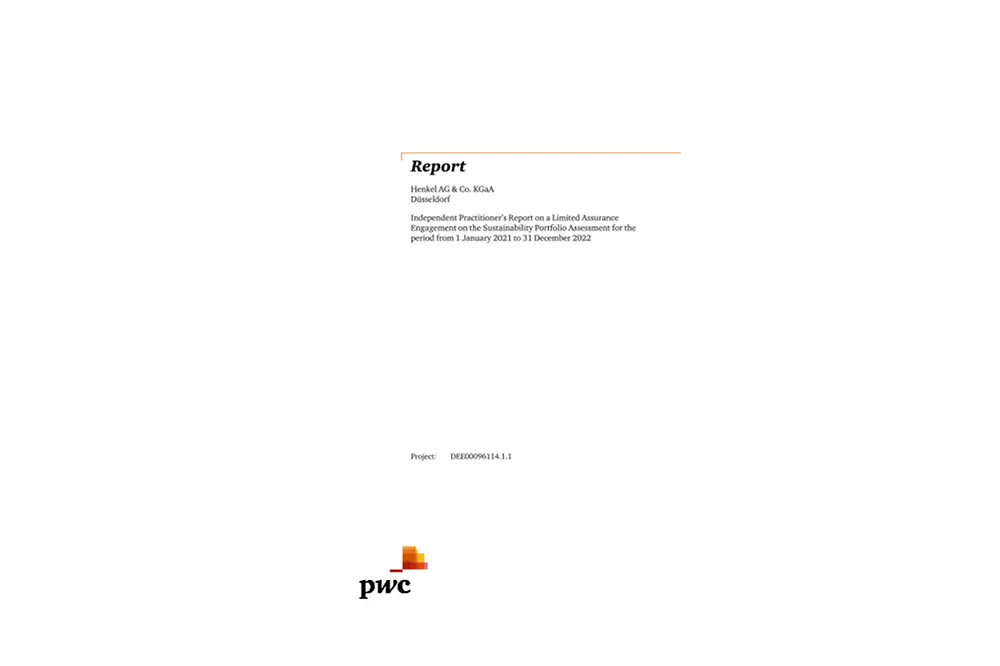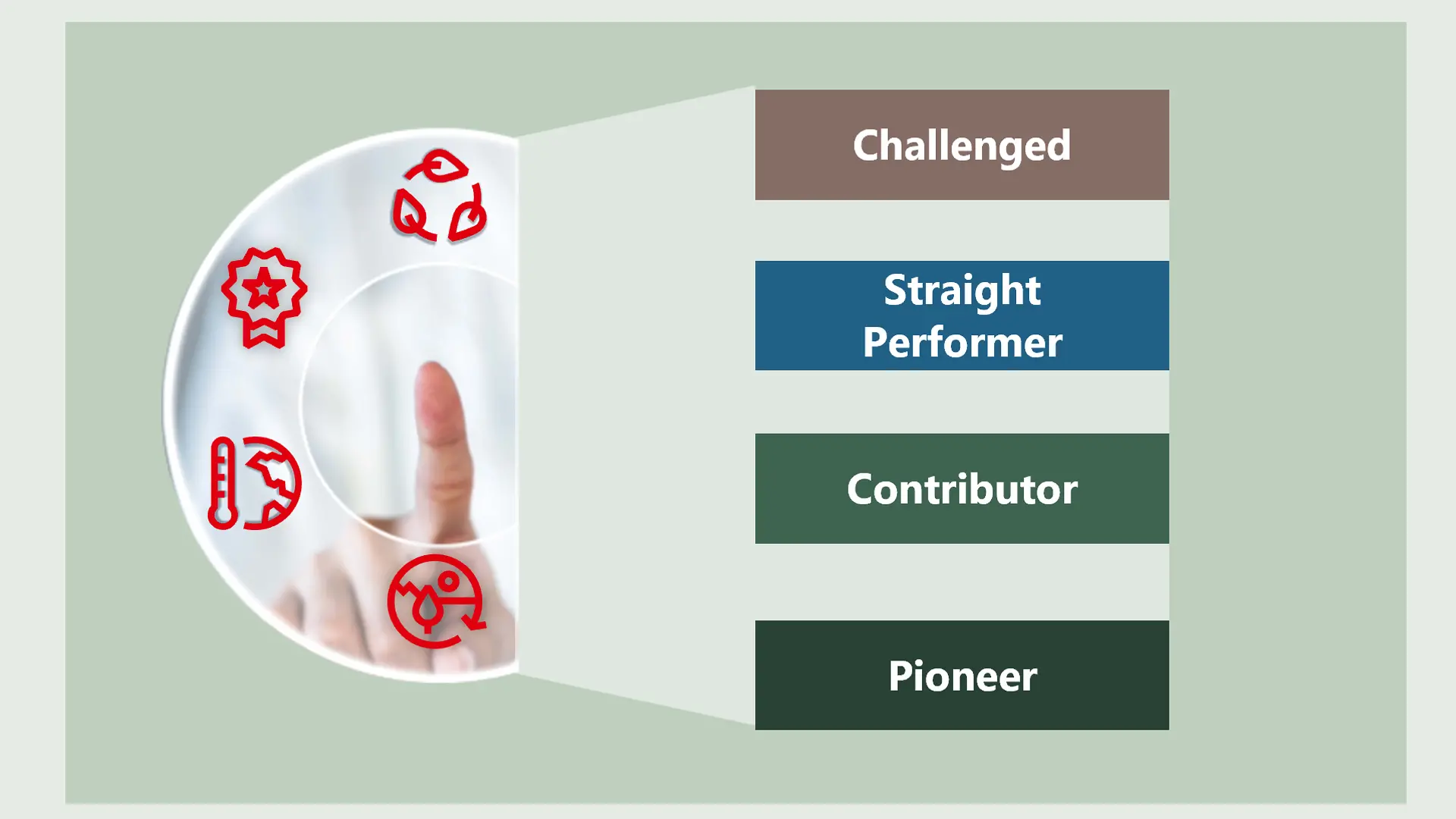As a global leader in adhesives, sealants and functional coatings Henkel Adhesive Technologies is constantly driving sustainability based on its Sustainability Ambition 2030. Besides optimizing its own footprint in operations and sourcing low emission raw materials, the business unit aims to lead through technology and drive impact with its diverse product portfolio.
Already today Henkel’s technologies and solutions significantly improve products and processes across its more than 100.000 customers in over 800 industry segments around the globe. Based on its material science know-how the company drives future trends shaping the global economy, such as e-mobility, wood construction, clean energy use and sustainable packaging.
To further accelerate its contributions to sustainability, Adhesive Technologies aims to holistically transform its portfolio. Thus, the business unit has developed an internal assessment methodology to create transparency on the sustainability performance of its product portfolio. The results of this assessment are then integrated end-to-end into all business steering processes including the definition of innovation and business strategies, as well as portfolio management and customer engagement.
The latest assessment was conducted in the first half of 2023 and has been audited by an external third party with limited assurance. To ensure a sufficient coverage of the portfolio, the internal methodology prescribes covering commercial products representing at least 80% of the net sales, including full coverage of `Challenged´1 products. With a coverage of 88% of net sales value from Adhesive Technologies in 2021 and 2022 respectively this threshold has been exceeded significantly.
“Assessing the sustainability contributions of our products as baseline for our strategic steering is an important backbone for transforming our portfolio towards positive impact in the areas of climate, circularity, safety and nature. The external audit is a strong confirmation of the approach we took to establish a systematic framework which is based on consistent criteria and supporting proof documents”, explained Ulla Hüppe, Global Head of Sustainability at Henkel Adhesive Technologies. “The results of the assessment create a clear understanding about the contribution and performance of each product and help to anchor sustainability as integral part of our business strategy. In addition, it provides even more transparency for our customers and supports the transformation towards new solutions enabling emission reduction and circularity.”
The focus of the assessment lies on identifying and mapping those products within the portfolio that have a significant contribution to sustainability. The criteria cover the entire value chain and consider impacts along all scopes – upstream, midstream and downstream. This way they not only cover the footprint of Adhesive Technologies’ own operations and raw material use, but also assess how solutions can enable customers to drive their sustainability agendas along four key dimensions:
The assessment includes the evaluation of a product’s contribution to one of the four key dimensions as well as the analysis of its chemical substances with regards to their impact on safety. Further, a comparison with market and industry standards is conducted according to specific topic criteria and risks of counterbalancing a positive impact in other steps of the value chain are considered. As a result, the assessment clusters products into four main categories: Challenged, Straight Performers, Contributors and Pioneers1. The contribution of Pioneers and Contributors to at least one of the key dimensions has to be proven through relevant documents.
For more information on the sustainability portfolio assessment please read the final practitioner report from 2023.
1 For further definition of assessment categories please refer to the practitioner report.




